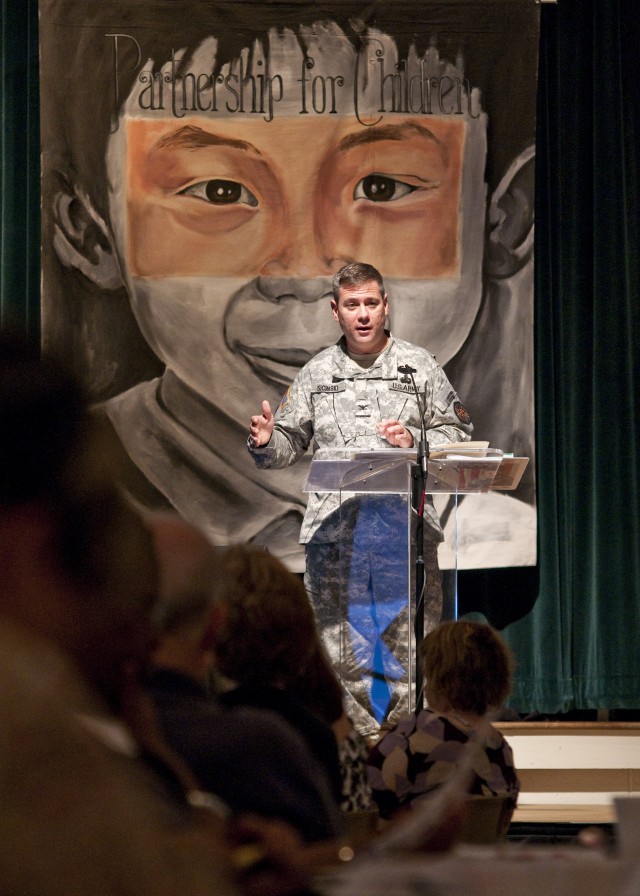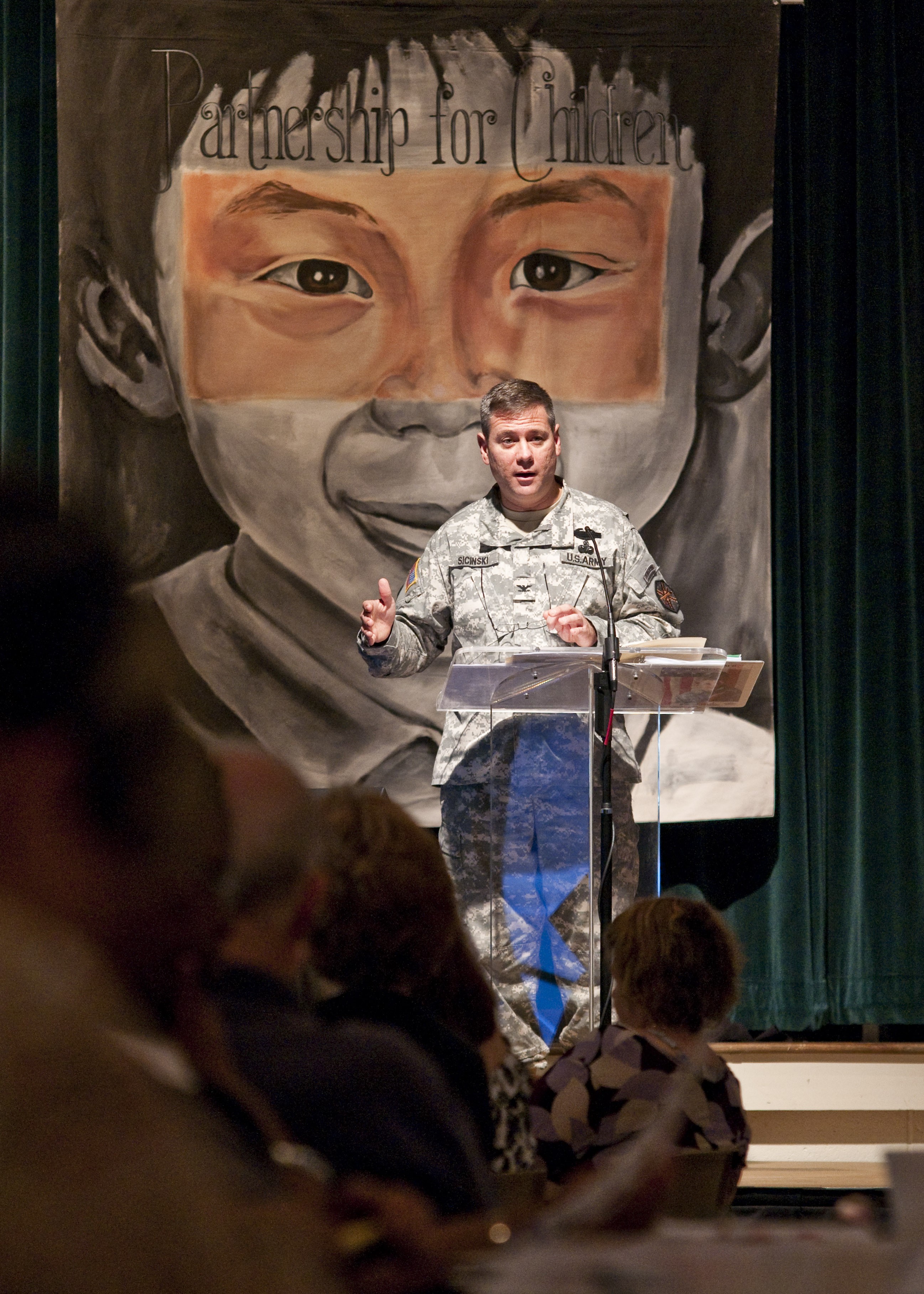FORT BRAGG, N.C. - The Army has come a long way from the old saying, 'If the Army wanted to you to have a wife and kids, they would have issued them to you.'
Since the post-Vietnam era, the Army has set up numerous programs to help provide support to Families and children associated with the military. After multiple deployments due to the Global War on Terrorism, the Army realized a greater need to help the Families of deployed Soldiers who deal with the different stresses associated with deployments and the absence of a spouse or parent.
The Partnership for Children, Snyder Memorial Baptist Church and the Southern Regional Area Health Education Center in affiliation with Duke University Medical Center held a conference to address these challenges, Sept. 16 and 17.
The conference, called Forward March: Moving Children Forward During Challenging Times, provided training and networking opportunities for behavioral and mental health professionals, faith-based and elected leaders, educators, wounded warriors and members of the civilian and military community who work to empower military children and Families.
Col. Stephen Sicinski, Fort Bragg's Garrison commander, welcomed the participants and answered questions about the relationships between military and civilian communities, the stresses of being a military child and the ability to support these needs.
"Can you imagine a child with dual military parents who are deployed at the same time'" Sicinski asked. "Not fun. Children are forced to live with grandma or grandpa for months. But thanks to a mandate of the Family Care Plan, they are provided some sort of stability.
"We have a system where we have a lot of instability covering a military child," he continued. "And it is greater then a civilian child, but the key is to create a safe and secure environment of stability where the child knows that tomorrow is going to be kind of like today but at least he has a home to come home to and someone is providing the love and care that he needs."
Sicinski reiterated that there are 43 Army programs that are especially designed to deal with temporary or long-term separations to support the Families and children of deployed Soldiers.
He mentioned the Army Forces Generation, which is a timeline for training, deployment, and post deployment on a three-year cycle.
"What this does is give the Soldier the chance to have dwell time of close to two years," Sicinski said. "The Soldier will train and then deploy for up to a year, redeploy and be home with his Family for at least a year."
What Sicinski described was what the Army calls the 'new normal.' The special operations forces have been executing this system for a while and the regular Army forces now have the ability to put it into affect.
Sicinski noted that the creation of new child development centers to accommodate the large number of children of military members as well as the baby boom expected at Womack Army Medical Center due to the return of the 82nd Airborne Division Soldiers.
"Womack is the busiest medical center in the Army," Sicinski said. "We've got the most dynamic maternity ward in the Army - about 3,200 babies a year. I guess in nine months we'll see how it goes."
The colonel also discussed the Army Family Covenant, which reiterates the Army's commitment to provide Soldiers and Families the quality of life commensurate with their level of service and sacrifice through services and programs.
Sicinski referred to the Vietnam era when there was a draft system and the Army didn't have the types of marriage rates it has today.
"It was largely a single man's Army," he said. "We are just now catching up to what the new social, demographic dynamic of what the force looks like within the Army.
"The Army Family Covenant is responsible for the 43 services available to Families now," Sicinski continued. "Before the war and Sept. 11, we maybe had 10."
Sicinski closed his speech reiterating that quality of life for Family members is critical to Soldiers and their spouses. If they aren't getting the quality of life that they need, they're taking what they've learned in the Army and going else where, he said.
"That's a gain for the country but a loss for the Army," he said. "The cornerstone to that is how we take care of our military children on post. From that perspective, I couldn't be happier that this conference is happening."
He joked that he was impressed with the number of doctors and experts participating in the conference. "Not too shabby for 'sleepy old Fayetteville," he laughed and then leaned in closer the microphone and said, "not so sleepy when you're the center of the universe."
"We've come a long way from the 'Fayettenam' era," he closed with. "We really are the most friendly military community in the country."


Social Sharing